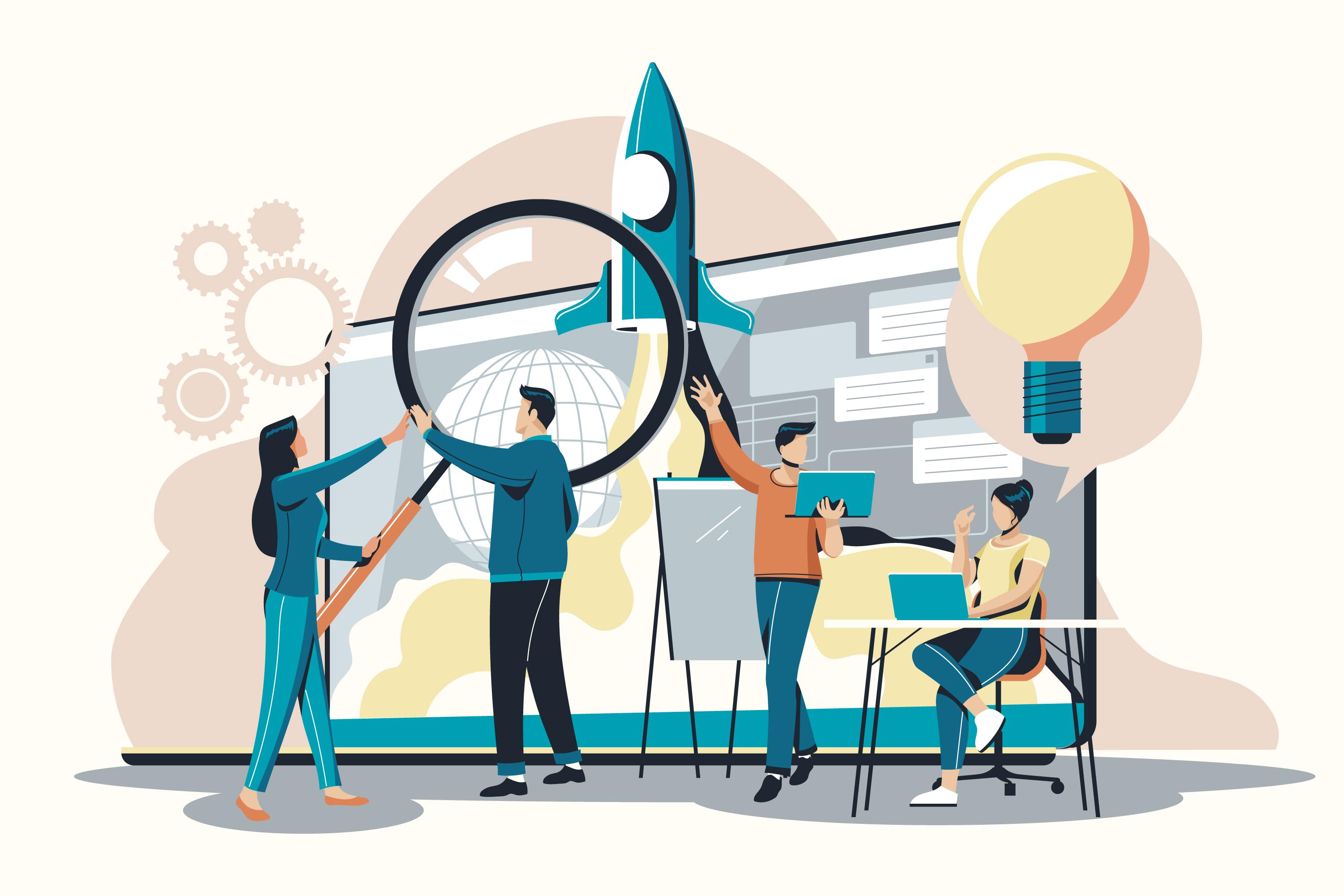
Future Workshop
Objective:
The pupils develop creative solutions to current problems or design visions for the future. They learn to discuss their ideas in a participatory manner, to reflect on them and to plan concrete steps for action.
Contents and methods:
The Future Workshop consists of three phases:
Criticism phase:
The participants collect and analyse problems or challenges relating to a specific topic. They discuss what bothers them or what should be improved.
Utopia phase:
In this creative phase, the pupils develop visions and ideas of what an ideal future could look like. There are no limits – the aim is to think creatively and boldly.
Realisation phase:
The collected ideas are reviewed for feasibility. The pupils develop concrete steps for action and plan how they can turn their visions into reality.
Skills:
- Critical thinking and problem analysis
- Creativity and visionary thinking
- Teamwork and communication
- Planning and implementation skills
- Self-efficacy
- Development of democratic education skills
Target group and level:
Grade 7 and above
76 other teachers use this template
Target group and level
Grade 7 and above
Subjects
Future Workshop


Introduction
Welcome to our future workshop! Today, you have the unique opportunity to develop and shape your ideas for tomorrow's world – we want to hear your thoughts and visions!
You will work together in three phases. First, we will take a critical look at what bothers us and where we would like to see improvements (criticism phase). Then we will let our imaginations run wild and come up with bold and creative visions of the future – without limits! (utopia phase). And finally, we will think together about how we can turn some of these ideas into concrete steps and even put them into practice (realisation phase).
Remember: there are no wrong ideas! Be bold, be creative, work as a team and dare to contribute your own ideas about the future.
Today's future workshop explores "Diversity and Inclusion in Our City – How Can an Open and Inclusive Community Be Promoted in Madison?" In the criticism phase, you'll uncover areas for change by answering the following questions.

Critical phase
Let's take a closer look first: What are the problems, challenges or things we would like to change?
👥 Work in groups and answer the questions.

Note for the teacher
The following material can be used as inspiration for pupils.
Inspiration and Ideas
Historical Context: How does the history of Madison, including its connection with the Ho-Chunk Nation, influence current diversity and inclusion efforts?
Educational Institutions: What role do local universities and colleges play in promoting diversity and inclusion within the city?
Community Engagement: How effective are current community programs in Madison in fostering inclusivity among different racial and ethnic groups?
Economic Disparities: What impact do economic inequalities have on diversity and inclusion in Madison, and how might these be addressed?
Public Spaces: Are there public spaces in Madison that could be redesigned to better accommodate diverse communities and promote inclusivity?
Representation: How well are minority groups represented in local government and decision-making bodies in Madison?
Cultural Events: What cultural events or activities could be introduced in Madison to celebrate diversity and promote inclusion?
Accessibility: How can Madison improve accessibility for individuals with disabilities, ensuring inclusivity in all areas of the city?
Youth Programs: What youth initiatives could be implemented to educate and promote inclusivity among the younger population in Madison?
Policy Development: What policies could be enacted to ensure sustained diversity and inclusion in Madison’s future development plans?
These questions aim to stimulate critical thinking and discussion among students in the criticism phase of the workshop.

Utopian phase
Now there are no limits to your imagination! What could our ideal future look like, without any ifs or buts?
👥 Now work together in new groups.
📝First, compare your results from the critique phase. Do you see any similarities? What is particularly important to you?
Lade Zeichenfeld...
✅ Example
💡Bonus task
Create an image of your future version using AI by following these steps.
Create a prompt.
Describe your vision of a city in the future in 1–2 sentences (e.g. technology, environment, life, transport).
Generate an image with your prompt at www.craiyon.com.
Reflect together:
- Does the image reflect your vision?
- What fits well, what is missing or different?
Save your image for the presentation or discussion.
🎤 Task: Present your vision for the future
Choose a specific aspect of your idea for the future.
Prepare a short pitch (approx. 1 minute) in which you present your vision.
Your goal is to convince the class that your idea is meaningful, realistic and desirable. Show why it is worth implementing.
💡 Use your AI-generated image as support. Make sure your language is clear and your message is strong.

Implementation phase
In the final step, we consider which of our great ideas we might actually be able to put into practice. What specific steps are necessary to achieve this?
📌 Now continue working together as a whole class. Each group now pitches their idea to the class. The audience can ask questions, make comments or add to the idea. Finally, vote for one idea.
📝 Enter the idea that won your vote here.
📌 Now it's your turn: As a group, think about what specific steps are necessary to make your idea for the future a reality.
Create a mind map and write down your thoughts on the following questions:
💭 Key questions for your planning
What do we need to implement the idea?
(e.g. materials, technology, rooms, permits)
How much would it cost?
(Do we need money or sponsors?)
Who could support us?
(e.g. school management, teachers, local government, parents, local businesses, savings bank, clubs)
Where could our project take place?
(e.g. school playground, city park, digital space, youth centre)
How do we inform others about our idea?
(e.g. presentation, poster, social media, school newspaper)
What could be obstacles – and how do we deal with them?
What tasks need to be done – and who is responsible for what?
Lade Zeichenfeld...
📝 Now decide together who will take on which tasks. Each person or team should fill in the fields for this purpose.

